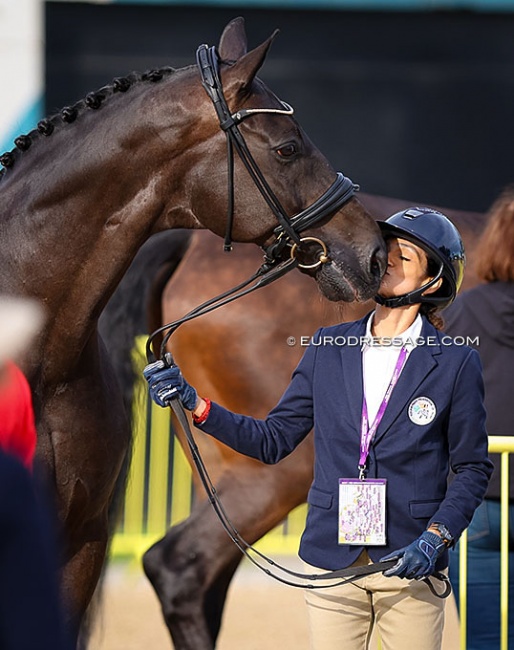
Theo Ploegmakers (° 1946) is EEF President after having been president of the Board of the Dutch Equestrian Federation ( KNHS). He was active as a jumping rider and sponsored international jumping rider Eric van der Vleuten for six years. During several years the firm he represented was the main sponsor of the World Cup Jumping. Before he became president of the KNHS he was vice-president of the well known CSI/CDI ‘Indoor Brabant’ at ‘s-Hertogenbosch for ten years. During his career Theo Ploegmakers was active as manager, director and vice-president of internationallyoperating firms.
Ploegmakers wrote this column, published 17 October 2022, as EEF (European Equestrian Federation) president.
The Equestrian Sport And Its Social Licence
Whilst Social Licence has often been discussed in matters of government policy or business, there is a growing consensus that sport must also acknowledge the importance and strive to obtain (and maintain) its position in society. For a sport with animals, such as in Equestrian sport, this is more difficult than for most other sports. With horses in the game, instances of bad images or snapshot videos evoke emotional reactions. A Social Licence to Operate (“SLO”) is given or lost by the public, which does not see a difference between racing, jumping, dressage or any other discipline. The public only sees the image of the horse and is concerned about what they think is the welfare of the horses used in sports and entertainment. It means we must be very mindful of how our sport is portrayed, and the communication we provide to help the wider public understand the high levels of horse welfare already in place.
The biggest threat to the SLO for our sport is the public losing its confidence, and trust, that the way we handle horses and our sport, in general, is the right way. The difficulties we face are that there is a difference between what we, the experts think, and what the public thinks. Equestrian sport is not immune from the challenges that this brings with it. The research paper from World Horse Welfare has found learnings from the food and natural resource industries that have also had to work to maintain their SLO.
It is not easy for us, the equestrian community, to admit and accept, that the way we handle and sport with our horses might be perceived so detrimentally by the public. Our sport has developed over many years, and we view many aspects of it as “normal” or even “necessary” but to an outsider, with little equestrian knowledge, it may not be understood this way and these opinions are decisive to the sport receiving its SLO. Ensuring we remain open to this and take time to consider ways we can open up our sport is essential to gaining public acceptance.
Crucially, SLO is not only determined by the way we handle our horses or restricted to welfare matters. There are many issues that combine, with sustainability being one of the most prominent and can determine the willingness of the public to give a SLO.
Some additional issues federations are facing and need to act upon are:
- Doping and drug abuse
- Acceptance of international labour standards
- Result fixing (an ability to influence results through money which results in pressure on athletes to do anything to keep winning)
- The integrity of the sport
- Environmental issues
- Child security
A sustainable sport is not just an environmentally conscious sport. It is a sport that can survive in the future. A fair sport where results are achieved with respect for the equine and human athletes. Where there is no place for the use of doping, fixing or other means to achieve results at all costs. Where there is mutual respect for the human athletes themselves but especially for the equine athletes. Where grooms have a protected and honest existence and get respect for their work. And, where there is respect for the environment and the way our sport deals with nature.
The equestrian community is also confronted with philosophical questions such as whether we have a right to ride horses and whether the horse wants to participate in our sport, or if it is forced to do so. All the above issues will influence the SLO and require clear management and strategy from the sports federations, potentially with the need to develop a specialist SLO strategy.
Crucially commentaries in several countries show that it is not only the opinions of non-equestrians that drive this movement, but many members of our equestrian community have also expressed that we as a sport need to change and adapt.
From the EEF, the matters are at the forefront of our work. The sustainability working group has been formed which will target environmental issues during events and the carbon emissions from sport horses amongst other key topics. This works alongside our existing working groups that focus on the horse and specific sports issues. A special project member, and non-executive member of the board, will be appointed to oversee these sustainability projects and create a SLO strategy that fits alongside the overall EEF strategy. The EEF will also investigate the possibility to start a communicative campaign about issues that are of influence for a sustainable sport.
The time for action is now and ultimately many of the issues must be led by the NFs in their environment, as the issues will differ from country to country. So, with this, it is urged that we remain mindful and work together to ensure a SLO and a positive future for our sport.
Related Links
Theo Ploegmakers: "The Social Licence"
Horse Welfare, Key Point of Discussion at 2022 IDRC / IDTC General Assembly
Joint Letter from IDRC/IDTC Sparks Controversy and Debate on Social Licence
Global Overview of Ethics and Responsibilities in Horse Sport: From Birth to Death
Racing and Equestrian Meet on the Common Ground of Horse Welfare